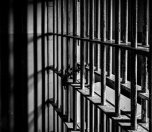Click to read the article in Turkish
Arrested since November 4, 2016, Peoples' Democratic Party's (HDP) former Co-Chair Selahattin Demirtaş was not given daily Evrensel, which published an interview with him. Ramazan Demir, one of the attorneys of Demirtaş, has announced the incident on Twitter:
"The scale of the bans imposed in prisons is taking on a further dimension with each passing day. The issue of daily Evrensel that published an interview with Selahattin Demirtaş on December 9 was not given to him on the ground that it fuels 'opposition to the state' and Demirtaş's reading of his own interview was found objectionable.
"Over the past year, newspapers, magazines and publications of Kurdish media are not given in any prisons. When a news is published on Hürriyet [newspaper], it is free; but, when it is published on [daily] Yeni Yaşam, it can be a reason for ban. The reasons for ban expressed by almost all prison administrations are equally arbitrary.
"These reasons were considered to be structural problems by the Constitutional Court with its verdict on Recep Bekik. Only the pro-government newspapers are now allowed in prisons, where inmates are permitted to watch only the pro-government TV channels. No different and critical voices and news can enter prisons any longer."
CLICK - 'Failure to Give Inmates Newspapers and Magazines Violates Freedom of Expression'
He was also prevented from reading his interview on BirGün
BirGün newspaper also published an interview with Selahattin Demirtaş on May 13, 2018. Answering the questions of the newspaper in written form, Demirtaş was also not given this issue of the daily on the ground of his own remarks in the interview.
In a decision issued by the Educational Board of Edirne Prison on May 14, 2018, a reference was made to his interview to BirGün. The Board indicated in its meeting that the remarks in question "incriminated the personnel of the institution by reporting false and denigrating news about them."
"No publications that pose a risk to the security of the institution or contain obscene news, articles, photographs and comments are given to the convict", the Board indicated further in its decision.
In issuing the above decision, the Educational Board also referred to the article foreseeing that "though the related publications are not banned by the courts, they are not allowed into the institution if there is a educational board decision indicating that they pose a risk to the security of the institution or contain obscene news, articles, photographs and comments..." (EKN/SD)






